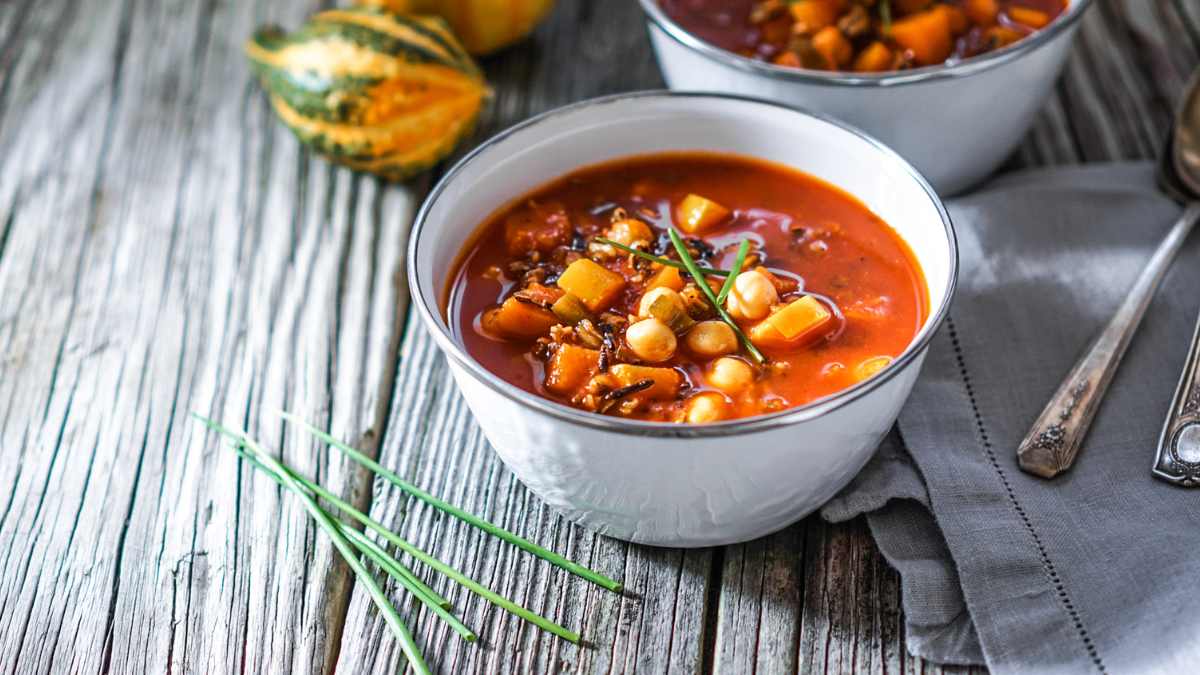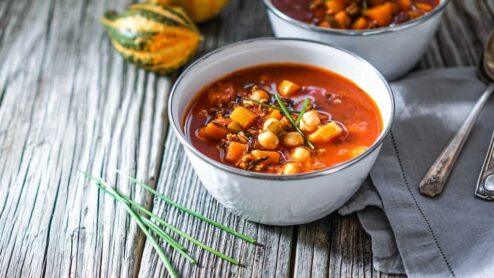Introduction:
Bruising is a common occurrence that can result from a variety of factors, including physical trauma, medical conditions, and dietary influences. The question of whether vegetarians bruise more easily than their meat-eating counterparts is a topic of interest for both medical professionals and individuals considering a vegetarian lifestyle. This article delves into the mechanisms of bruising, the nutritional factors that can affect bruise susceptibility, and provides recommendations for vegetarians to minimize their risk of bruising.
Introduction to Bruising and Dietary Influences
Bruising occurs when small blood vessels near the skin’s surface break and leak blood into the surrounding tissues. This can result from a direct impact, pressure, or even minor trauma. The severity and frequency of bruising can be influenced by several factors, including age, genetics, and overall health. However, diet also plays a crucial role in how easily one might bruise.
A vegetarian diet, which excludes meat and sometimes other animal products, can be rich in certain nutrients but may lack others that are essential for maintaining healthy blood vessels and skin integrity. This raises the question: do vegetarians bruise more easily due to potential nutritional deficiencies? Understanding the relationship between diet and bruising can help in making informed dietary choices.
Dietary influences on bruising are multifaceted. For instance, a diet lacking in certain vitamins and minerals can weaken blood vessels, making them more prone to breaking. On the other hand, a well-balanced vegetarian diet can provide ample nutrients that support vascular health. Therefore, it is essential to examine both the potential deficiencies and benefits of a vegetarian diet in the context of bruising.
In this article, we will explore the mechanisms of bruising, the nutritional factors that influence bruise susceptibility, and how vegetarians can optimize their diet to minimize the risk of bruising.
Mechanisms of Bruising in the Human Body
Bruising, medically known as contusion, occurs when blood vessels are damaged due to trauma, leading to blood leakage into the surrounding tissues. This results in the characteristic discoloration and tenderness associated with bruises. The process of bruising involves several stages, starting with the initial impact and ending with the body’s natural healing process.
When a blood vessel is damaged, the body initiates a complex cascade of events to repair the injury. Platelets gather at the site of damage to form a clot, preventing further blood loss. Meanwhile, the leaked blood is gradually broken down and reabsorbed by the body, causing the bruise to change color over time from red to purple, then green, and finally yellow as it heals.
The integrity of blood vessels plays a significant role in how easily one bruises. Factors such as age, genetics, and overall health can affect blood vessel strength and elasticity. For instance, older individuals often have more fragile blood vessels, making them more susceptible to bruising. Similarly, certain medical conditions, such as clotting disorders, can increase the likelihood of bruising.
Dietary factors also influence blood vessel health. Nutrients such as vitamins C and K, bioflavonoids, and minerals like zinc and iron are essential for maintaining strong and healthy blood vessels. A deficiency in any of these nutrients can compromise blood vessel integrity, making them more prone to damage and increasing the risk of bruising.
Nutritional Factors Affecting Bruise Susceptibility
Several key nutrients play a vital role in maintaining blood vessel health and reducing the risk of bruising. Vitamin C is crucial for collagen synthesis, which is essential for the structural integrity of blood vessels. A deficiency in vitamin C can lead to weakened blood vessels, making them more susceptible to breaking and causing bruises.
Vitamin K is another essential nutrient that plays a critical role in blood clotting. Without adequate vitamin K, the body may struggle to form clots effectively, leading to prolonged bleeding and more noticeable bruising. Leafy green vegetables, which are common in vegetarian diets, are excellent sources of vitamin K.
Bioflavonoids, found in fruits and vegetables, work synergistically with vitamin C to strengthen blood vessels and reduce inflammation. These compounds help maintain capillary strength and prevent excessive bruising. A diet rich in bioflavonoids can support overall vascular health and reduce the likelihood of bruising.
Iron and zinc are minerals that also contribute to blood vessel health. Iron is essential for the production of hemoglobin, which carries oxygen to tissues and supports healing. Zinc plays a role in cell repair and immune function. Both minerals are found in plant-based sources, but vegetarians may need to ensure they consume adequate amounts to prevent deficiencies that could lead to increased bruising.
Comparative Analysis: Vegetarians vs. Non-Vegetarians
When comparing vegetarians to non-vegetarians, it is essential to consider the differences in nutrient intake that could influence bruise susceptibility. Vegetarians often consume higher amounts of fruits and vegetables, which are rich in vitamins C and K, as well as bioflavonoids. These nutrients support blood vessel health and may help reduce the risk of bruising.
However, vegetarians may be at risk of deficiencies in certain nutrients that are more readily available in animal products, such as vitamin B12, iron, and zinc. Vitamin B12 is crucial for red blood cell production and overall blood health. A deficiency in vitamin B12 can lead to anemia, which can increase the likelihood of bruising. Fortified foods and supplements can help vegetarians meet their vitamin B12 needs.
Iron from plant sources, known as non-heme iron, is less readily absorbed by the body compared to heme iron from animal products. Vegetarians can enhance iron absorption by consuming vitamin C-rich foods alongside iron-rich plant foods. Zinc, found in legumes, nuts, and seeds, is essential for wound healing and immune function. Vegetarians should ensure they consume adequate zinc to support overall health and reduce the risk of bruising.
Overall, while vegetarians may have a diet rich in certain nutrients that support blood vessel health, they must be mindful of potential deficiencies in other essential nutrients. By carefully planning their diet and considering supplementation when necessary, vegetarians can maintain optimal health and minimize the risk of bruising.
Role of Vitamins and Minerals in Bruise Prevention
Vitamins and minerals play a crucial role in maintaining blood vessel integrity and preventing bruising. Vitamin C, found in citrus fruits, strawberries, and bell peppers, is essential for collagen production, which strengthens blood vessels and reduces the risk of bruising. A diet rich in vitamin C can help maintain healthy skin and blood vessels.
Vitamin K, abundant in leafy green vegetables such as kale, spinach, and broccoli, is vital for blood clotting. Adequate vitamin K intake ensures that the body can form clots effectively, preventing excessive bleeding and bruising. Vegetarians typically consume ample vitamin K through their diet, supporting overall vascular health.
Iron is another critical nutrient for preventing bruising. It is necessary for the production of hemoglobin, which transports oxygen to tissues and supports healing. Vegetarians can obtain iron from plant sources such as lentils, chickpeas, and fortified cereals. Pairing these foods with vitamin C-rich items can enhance iron absorption and support overall blood health.
Zinc, found in nuts, seeds, and whole grains, is essential for cell repair and immune function. Adequate zinc intake supports wound healing and helps maintain strong blood vessels. Vegetarians should ensure they consume enough zinc to support overall health and reduce the risk of bruising.
Recommendations for Vegetarians to Minimize Bruising
To minimize the risk of bruising, vegetarians should focus on consuming a well-balanced diet rich in essential nutrients. Including a variety of fruits and vegetables can provide ample vitamins C and K, which are crucial for blood vessel health and clotting. Citrus fruits, berries, and leafy greens are excellent choices to support vascular integrity.
Vegetarians should also pay attention to their iron and zinc intake. Consuming iron-rich plant foods such as lentils, chickpeas, and fortified cereals, along with vitamin C-rich foods, can enhance iron absorption. Nuts, seeds, and whole grains are good sources of zinc, which supports cell repair and immune function.
Supplementation may be necessary for certain nutrients that are less abundant in a vegetarian diet. Vitamin B12, essential for red blood cell production and overall blood health, is primarily found in animal products. Vegetarians should consider fortified foods or supplements to meet their vitamin B12 needs and prevent deficiencies that could lead to increased bruising.
Regular monitoring of nutrient levels through blood tests can help vegetarians identify and address any deficiencies promptly. Consulting with a healthcare provider or a registered dietitian can provide personalized recommendations to ensure a well-balanced diet that supports overall health and minimizes the risk of bruising.
Conclusion:
While vegetarians may have a diet rich in certain nutrients that support blood vessel health, they must be mindful of potential deficiencies in other essential nutrients. By carefully planning their diet and considering supplementation when necessary, vegetarians can maintain optimal health and minimize the risk of bruising. Understanding the role of vitamins and minerals in bruise prevention and making informed dietary choices can help vegetarians lead a healthy lifestyle without the worry of increased bruising.
More informations:
-
National Institutes of Health – Vitamin C: Provides comprehensive information on the role of vitamin C in health, including its impact on blood vessel integrity.
-
National Institutes of Health – Vitamin K: Offers detailed insights into the importance of vitamin K for blood clotting and vascular health.
-
Harvard T.H. Chan School of Public Health – Iron: Discusses the different types of iron, their sources, and how to enhance absorption, particularly for vegetarians.
-
National Institutes of Health – Zinc: Provides information on the role of zinc in cell repair and immune function, and its sources in a vegetarian diet.
-
Academy of Nutrition and Dietetics – Vegetarian Diets: Offers guidance on maintaining a balanced vegetarian diet, including tips for ensuring adequate intake of essential nutrients.


